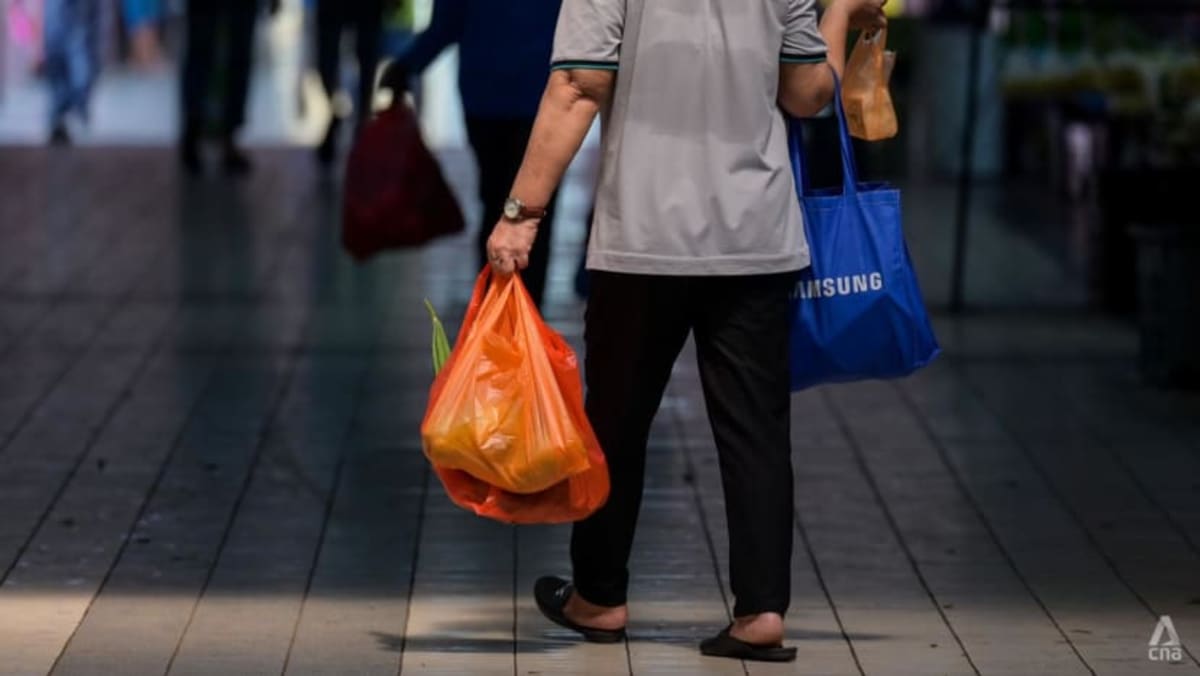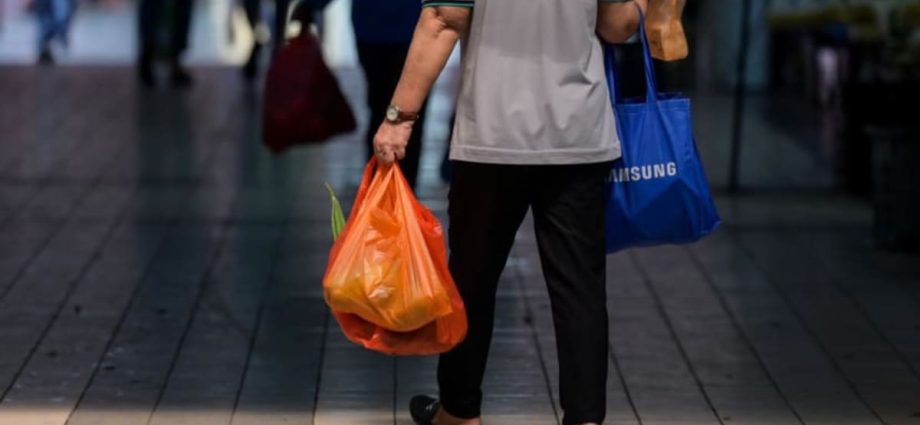
SINGAPORE: Large supermarket operators have observed around a 50 per cent to 80 per cent drop in the number of disposable carrier bags used by consumers since the minimum 5-cent charge came into force, said Minister for Sustainability and the Environment Grace Fu.
“Since its implementation on Jul 3, 2023, the mandatory disposable carrier bag charge has generally been well-received,” said Ms Fu in a written parliamentary answer to MP Foo Mee Har (PAP-West Coast) on Tuesday (Jan 9).
Ms Foo had asked to what extent has the mandatory charge for plastic bags at supermarket chains resulted in a reduction in the amount of supermarket plastic bags used and the promotion of wider recycling efforts.
“The obligated larger supermarket operators have observed approximately 50 per cent to 80 per cent reduction in the number of disposable carrier bags that consumers have taken,” said Ms Fu.
Supermarket operators with an annual turnover of more than S$100 million (US$73.9 million) began charging at least 5 cents per disposable carrier bag on Jul 3, 2023. These include NTUC FairPrice, Cold Storage, Giant, Sheng Siong and Prime Supermarket.
These operators account for around two-thirds, or about 400, of all supermarkets in Singapore.
According to a 2018 study by the Singapore Environment Council, consumers in Singapore take about 820 million plastic bags from supermarkets each year, or about 146 bags per person per year.
While the disposable carrier bag charge provides hope that consumers may be compelled to reconsider their choices and adopt more eco-friendly practices, Ms Fu pointed out it might be “too early” to assess its impact.
“As the bag charge was implemented less than a year ago, it may be too early to tell if it has also resulted in increased participation in other recycling initiatives.”
She also said it was difficult to “directly attribute” any changes in recycling habits to the bag charge as the initiative focuses on reducing, rather than recycling.
“We hope that the adoption of such sustainable habits will lead to wider behavioural change,” said Ms Fu, adding that the charge is a “behavioural nudge” to encourage the public to adopt sustainable practices, including reducing the use of disposable carrier bags.
Grocers confirmed to CNA last March that proceeds from the bag charge would be used for social and environmental causes, but most of them said that specific details had yet to be finalised.
“We are heartened that the supermarket operators have also indicated that they intend to use the proceeds from the bag charge to support environmental or social causes,” Ms Fu said on Tuesday.
CNA has contacted the major supermarket chains in Singapore for more details on where the proceeds will go to.

